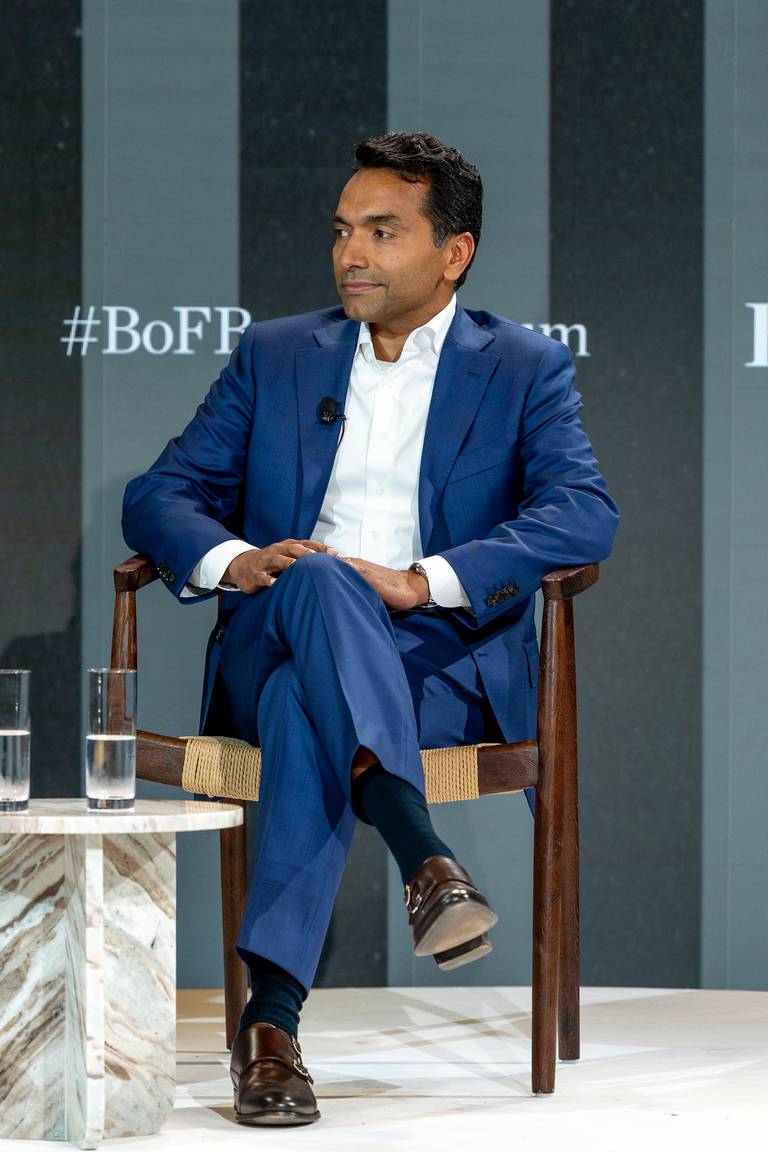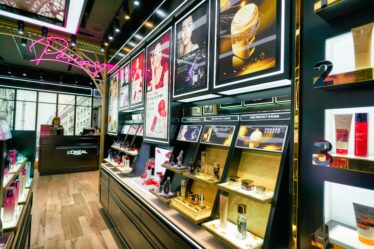
“Personalisation is important in beauty because this industry is as personal as it gets,” said Bolt CEO Maju Kuruvilla in his opening remarks on stage at BoF’s inaugural The Business of Beauty Global Forum, held in Napa Valley, California.
Indeed, few industries play such a personal role in customers’ lives — or relate so closely to their identities — as the beauty industry. In recent years, more inclusive product ranges have better matched the identities of previously underrepresented customer cohorts. According to Bolt’s latest beauty e-commerce report, 58 percent of shoppers said that diversity and inclusion are important when purchasing products from a beauty or skincare brand.
Now, personalisation is set to transform the path to purchase with greater “consumer empathy,” unlocking both growth and lifetime value. After all, in Bolt’s report, 75 percent of shoppers would pay more for a personalised online shopping experience.
Today, shoppers are more accustomed than ever to personalised content — algorithms on social media platforms like Instagram and TikTok serve up curated content to keep users engaged, or streaming services like Netflix are calibrated to maximise how many hours subscribers spend on the platform.
Personalising the online shopping experience at scale, however, is still nascent. A growing opportunity exists to personalise the path to purchase, but adoption has been slow due to the cost of predicting consumer behaviour in-house, and the impact of tightening privacy laws on capturing customer data.
Only a small proportion of retailers are taking the critical next step to offer individualised product recommendations and search results on their e-commerce websites. Research firm Manhattan Associates undertook a survey of more than 100 brands and retailers — only 20 percent of those surveyed said they customise product recommendations based on a customer’s purchase history.
Optimising and enabling personalisation at scale through proprietary technology, third-party solution Bolt creates shopper identities that empower retailers to service customers as individuals by better reflecting preferences. Simply, this technology benefits the bottom line — 75 percent of shoppers would pay more for beauty and skin care products if they got personalised online shopping experiences, according to Bolt’s latest report. In addition, Coresights Research in partnership with Bolt found that 76 percent of online shoppers abandon their carts at checkout, underlining the business case for optimising the check-out experience.
On stage at The Business of Beauty Global Forum 2023, Bolt CEO Maju Kuruvilla shared his insights on how customer data can be utilised to increase lifetime value and optimise retail channel performance.
Below, BoF shares his key insights.
Look beyond the categorisation and aggregation of consumers
MK: Personalisation is important in beauty because beauty is as personal as it gets. Beauty customers have so many routines and rituals they uphold, it makes it such an important focus point to deliver a more personal experience.
As an industry, let’s not be fooled into grouping people together — even into categories. You have to go a step further from there and really understand the individuals. Technology allows us to leverage data and aggregate people into groups so that we can recognise customer cohorts and recommend the appropriate products. But interests are so individualised, differing from one customer to the next.
Brands and retailers almost have a responsibility to understand that consumer at an individual level.
I call understanding individuals ‘consumer empathy’ and today, I feel with the technology, all the brands and retailers almost have a responsibility to understand that consumer at an individual level. The future is for brands that embrace consumer empathy and build around their needs to connect with them long-term.
Build digital identities to connect experiences across the entire shopper journey
MK: It starts with the question: ‘what is digital identity?’ The ability to identify a shopper to give them a personalised experience and a friction-free buying experience — that whole package — is the digital identity of the shopper.
Most of the brands have access to a finite group of shoppers. Table stakes is recognising more shoppers and giving them a personalised experience. Imagine if you have access to a much larger network of shoppers, and those shoppers have the opportunity to experiment by buying different brands from different products from different sites, at the ease of buying with one click.
Bolt did a study that shows that about 40 plus percent of shoppers would rather shade-match for foundation through AI online than test in-store. So, think of the identity as something that is connecting the experience between the online and the offline, using the identity of the shopper to drive that omnichannel experience.
Consider customer recognition and connection as new success metrics
MK: We think about customer lifetime value as an end-to-end experience — the cycle of recognising them. For example, from day one for one of our customers Revolve, we were able to recognise 17 percent of their traffic that they couldn’t recognise themselves. That number then increases when merchants continue using Bolt. So after six months, that 17 percent went up to 43 percent.
That cycle of recognising more shoppers so that you can practically get rid of guest shopping […] is what we are focussed on.
The ability to recognise more than 40 percent of your shoppers when they come to your site in a friction-free way allows them to provide a better experience. When you get them in, you recognise them and you convert them, then how do you build a lifetime connection with them? We drive that by creating a friction-free way for people to create accounts so you can track that shopper long term.
When we started to support Badgley Mischka creating customer accounts, it saw a 100 percent increase in the number of shoppers creating store accounts. That cycle of recognising more shoppers so that you can practically get rid of guest shopping, and providing them with a great experience so you can convert better and connect them to build lifetime value, is what we are focussed on.
Ensure privacy and trust to strengthen the retailer-consumer relationship
MK: You have to consider all the regulations and privacy and trust for the consumer. That is why Bolt is built with security and privacy from the ground-up. We have to be compliant with GDPR [General Data Protection Regulation,] the California Consumer Privacy Act, and many different laws and regulations.
But beyond that, you have to have consumer trust. At Bolt, we make sure we meet and beat all the standards to maintain trust, while making it very easy for consumers to still look around a shop.
For example, we heard from Sephora how important it is for them to create accounts. Having that shopper information is beneficial for the consumer, but for the merchant, it helps for a variety of things — all the way from merchandising. So, now you know what people are buying, are browsing, you can see the new trends, and drive that information to merchandising teams.
It can also be used to make better recommendations. Sometimes that can be about the product, or it can even be a reminder of a customer’s purchasing history, proving a rich experience.
This interview has been edited and condensed for clarity.
This is a sponsored feature paid for by Bolt as part of a BoF partnership.



